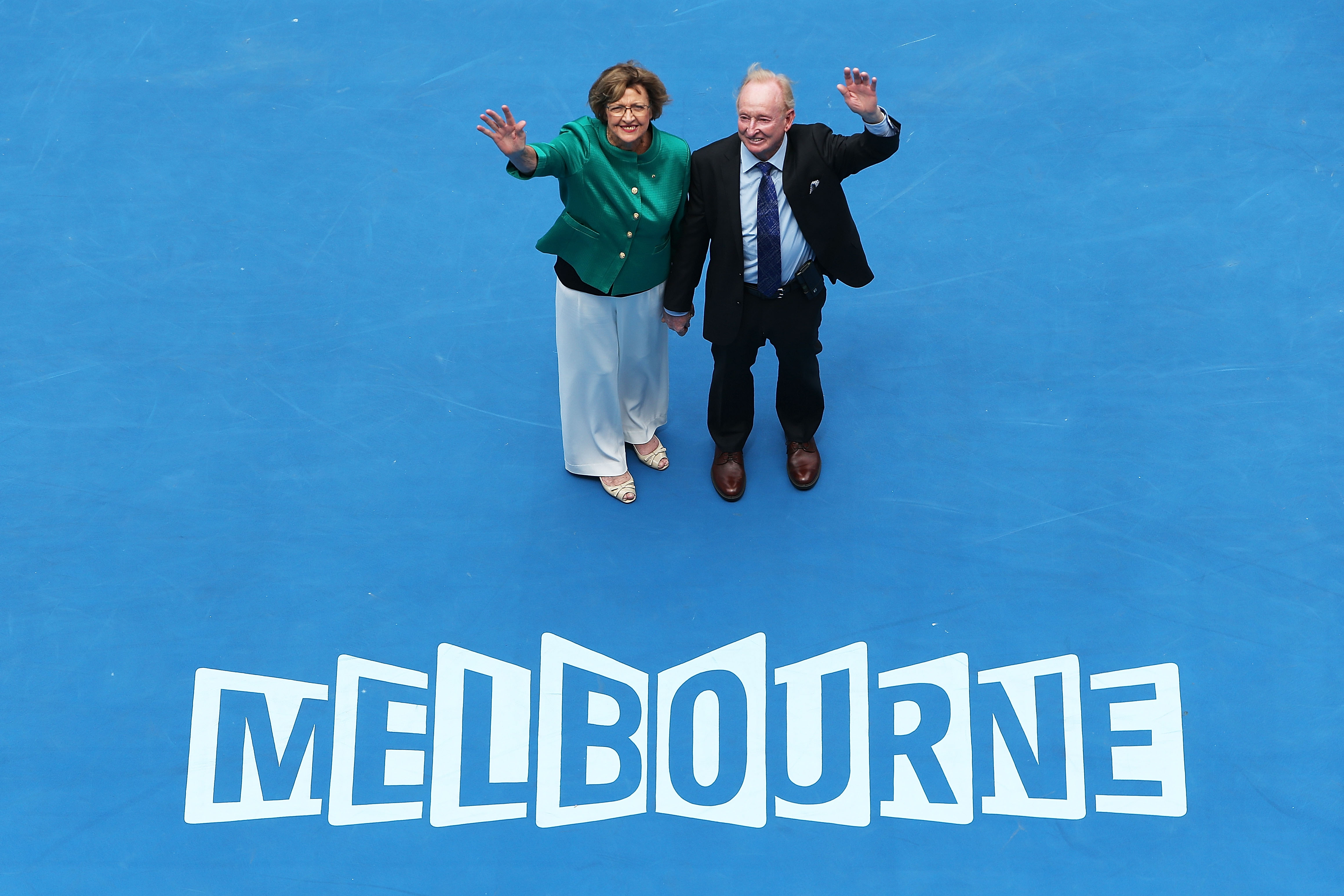Former Australian tennis great Margaret Court and her controversial views are once again back in the spotlight, over a decision to award her with the country’s top honour.
Court, who is already an Officer of the Order of Australia, is set to be made a Companion in the General Division of the AO – the highest award level.
The appointment to recognise her “eminent service to tennis” was due to be revealed on Monday but was leaked on social media on Friday. It has already attracted criticism over her widely-opposed and outspoken views on homosexuality, gay marriage and transgender people.
Victorian Premier Daniel Andrews strongly opposed the decision, saying her “disgraceful and hurtful” views should not be honoured.
A tennis great
Court is arguably one of the greatest tennis players of all time and holds a record 24 Grand Slam singles titles, putting her ahead of Serena Williams by one major.
She has 64 major titles across singles, doubles and mixed doubles tournaments.
In 2003, the Australian Open venue, Melbourne Park Stadium, was named Margaret Court Arena in her honour. Subsequent calls from players, such as 18-time Grand Slam champion Martina Navratilova, to rename the venue have not eventuated.
Court was named an Officer of the Order of Australia in the 2007 honours list. She has also been a Member of the Order of the British Empire (MBE) since 1967 for her service to sport and international relations.
Last year, she successfully battled for the 50th anniversary of her 1970 season Grand Slam to be marked by Tennis Australia at the Australian Open – an event in itself that was stoked in controversy.
Why is she controversial?
Court, 78, is now a Pentecostal minister at a church in Perth and has drawn repeated criticism over recent years for her outspoken position on the LGBTIQ+ community.
Court has publicly opposed same-sex marriage, condemned transgender athletes and said LGBTIQ+ school lessons are “of the devil” – comments which have been denounced as homophobic.
In 2013, she wrote a letter to a newspaper decrying the birth of Australian tennis player Casey Dellacqua’s child in a same-sex relationship.
‘Personally, I have nothing against Casey Dellacqua or her “partner”,” she wrote.
“It is with sadness that I see this baby has seemingly been deprived of his father.”
Several years later, Court sparked another media storm after declaring in a letter to a local paper that she would no longer fly with Qantas over the airline’s support for gay marriage. At the time, Australia was yet to legalise gay marriage, though opinion polls had shown the majority of Australians supported it.
“I am disappointed that Qantas has become an active promoter for same-sex marriage,” Court said in the letter published in The West Australian newspaper.
“I believe in marriage as a union between a man and a woman as stated in the Bible.
“Your statement leaves me no option but to use other airlines where possible for my extensive travelling.”
In 2019, Court took aim at trans athletes and trans children in a sermon at the Pentecostal church where she is a minister.
“Because we are living in a season … even that LGBT and the schools – it’s of the devil, it’s not of God,” Court told her congregation at the time.
“And when children are making the decision at seven or eight years of age to change their sex … no, just read the first two chapters of Genesis, that’s all I say. Male and female.
“It’s so wrong at that age because a lot of things are planted in this thought realm at that age. And they start to question ‘What am I?’ and if you are a Christian… you believe the word of God, this is our TV guide to life…
“And you know with that LGBT, they’ll wish they never put the T on the end of it because, particularly in women’s sports, they’re going to have so many problems.”
Court’s sermon came a month before her Grand Slam was due to be honoured by Tennis Australia.
The governing body was torn over how to commemorate its greatest woman player but agreed to “recognise but not celebrate” Court’s achievement, while distancing itself from her personal views.
“As often stated, Tennis Australia does not agree with Margaret’s personal views, which have demeaned and hurt many in our community over a number of years,” TA said in a statement at the time.
“They do not align with our values of equality, diversity and inclusion.
“Our sport welcomes everyone, no matter what gender, ability, race, religion or sexuality, and we will continue to actively promote inclusion initiatives widely at all levels of the sport.”
Why is she in the spotlight again?
The announcement of Court’s appointment as Companion of the Order of Australia has once again drawn criticism, with the Victorian premier saying he did not believe she should be honoured.
“I don’t give out those gongs; that’s not a matter for me. You might want to speak to them about why they think those views which are disgraceful, hurtful and cost lives should be honoured,” he told reporters on Friday.
“I’m not going to stand here for politeness’s sake and not live my values and my values say those attitudes, and the position of my government and I think the vast majority of Victorians – they do not support that kind of hateful approach.”
Prime Minister Scott Morrison said he had no official knowledge of the matter.
“I can’t comment on an award that’s done through an independent process that hasn’t been announced or I have no official knowledge of those things,” he said.
“This is a completely independent separate process.”
But Opposition leader Anthony Albanese was also critical of the move, saying Court has “already been honoured for her tennis prowess”.
“I think it’s clear for everyone to see that making her a Companion of the Order of Australia has nothing to do with tennis,” he said.







